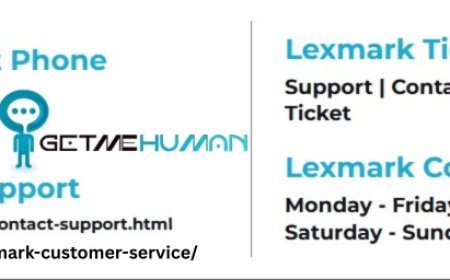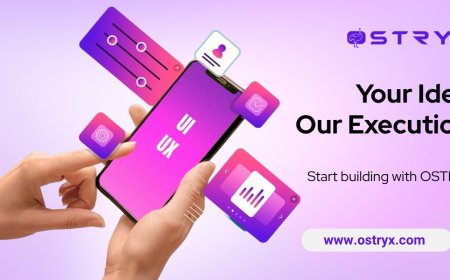Top Use Cases of Digital Signature Certificates in 2025
A digital signature is like an online identity card. It proves who you are when you are signing a digital document, just like your handwritten signature

In 2025, digital processes will have become the new normal. Businesses, government offices, and even individuals are relying heavily on digital tools to complete daily work faster, more securely, and with greater convenience. One such powerful tool that is being widely used is the Digital Signature Certificate (DSC).
A digital signature is like an online identity card. It proves who you are when you are signing a digital document, just like your handwritten signature does on a paper document. However, a DSC is even more secure because it uses encryption to protect your identity and the contents of the document.
In this article, we will explain in simple words the top use cases of Digital Signature Certificates in 2025, why they are important, and how they are changing the way people work across different fields.
What is a Digital Signature Certificate (DSC)?
A Digital Signature Certificate is an electronic form of a signature. It is issued by a government-approved authority and is used to prove the identity of the signer. It works through encryption, which means the data is protected and cannot be changed after the signature is applied.
In short, a DSC ensures that:
-
The document is authentic
-
The signature is genuine
-
The data is secure and tamper-proof
Types of Digital Signature Certificates
In 2025, DSCs are categorized into different classes based on their purpose:
-
Class 1 DSC: Used for individual identification (email, login credentials)
-
Class 2 DSC: Used for signing documents, filing income tax, GST, etc.
-
Class 3 DSC: Used for high-security functions like e-tenders, e-auctions, etc.
With the latest rules, Class 3 DSC is now the standard for most professional and official uses.
Why Are Digital Signature Certificates Important in 2025?
-
Digital communication has replaced paper-based work
-
Cybersecurity is a top concern, and DSCs ensure secure transactions
-
Laws in many countries, including India, have made DSCs legally acceptable
-
They save time, reduce paperwork, and lower costs
-
Almost every government department, corporate business, and professional organization now requires DSCs
Top Use Cases of Digital Signature Certificates in 2025
Let us now explore the most common and essential use cases of DSCs in todays digital world.
1. Filing Income Tax Returns
One of the most common uses of DSCs is for filing Income Tax Returns (ITR).
In 2025, the Income Tax Department requires certain categories of taxpayers such as:
-
Companies
-
LLPs (Limited Liability Partnerships)
-
Individuals with large incomes
to digitally sign their returns before submission.
Using a DSC:
-
Makes the return legally valid
-
Speeds up the processing
-
Reduces the chances of fraud or rejection
2. Filing GST Returns
All businesses registered under Goods and Services Tax (GST) use DSCs to file their monthly, quarterly, and annual returns.
-
Ensures accurate and secure data filing
-
Verifies the identity of the taxpayer
-
Mandatory for companies and LLPs
3. Company Incorporation and ROC Filings
When a business is registered under the Ministry of Corporate Affairs (MCA) in India, a DSC is mandatory.
Uses include:
-
Registering a new company
-
Filing annual reports with the Registrar of Companies (ROC)
-
Signing resolutions, director reports, and financial statements
4. Participation in E-Tenders
Most government departments and PSUs conduct tenders online. These are called e-tenders.
To participate:
-
Businesses must upload tender documents with a Class 3 DSC
-
The digital signature confirms the identity of the bidder
-
Ensures a secure and fair bidding process
5. Signing Legal Contracts and Agreements
Whether its a vendor contract, employment agreement, or partnership deed, DSCs allow parties to sign documents digitally.
Benefits:
-
Legally valid as per the Indian IT Act, 2000
-
No need for physical meetings
-
Reduces costs and time spent on courier or notarization
6. EPFO and Other Statutory Filings
In 2025, organizations filing data with Employees Provident Fund Organization (EPFO) and other regulatory bodies use DSCs for:
-
Uploading digital KYC data
-
Filing employee return forms
-
Ensuring data accuracy and legal validity
7. Online Patent and Trademark Filing
Entrepreneurs, inventors, and business owners can file for patents, trademarks, and copyrights using DSCs.
-
Allows faster processing of applications
-
Protects identity and intellectual property
-
Required by the Indian Intellectual Property Office
8. Banking and Financial Transactions
Many banks now accept DSCs for:
-
Loan applications
-
Digital agreements
-
Approving board resolutions or fund transfers in large companies
9. Government Employees and Public Services
In many state and central government departments, employees use DSCs for:
-
Approving internal memos
-
Issuing official letters
-
Clearing files in e-office systems
10. Insurance Sector
Insurance companies and agents use DSCs for:
-
Signing insurance policies
-
Submitting claims
-
Approving digital documents
Suggested Read Class 3 Digital Signature Certificate For eTender
Conclusion
In 2025, Digital Signature Certificates are no longer just a tool for IT professionals or big companies. They are a daily necessity for anyone who is part of the modern digital worldwhether you're a business owner, government officer, freelancer, or student.
DSCs make online work faster, safer, and legally valid. From filing taxes to signing contracts, from healthcare to education, the use of digital signatures is everywhere. By understanding and using them properly, you can save time, protect your data, and explore many new opportunities.
























































